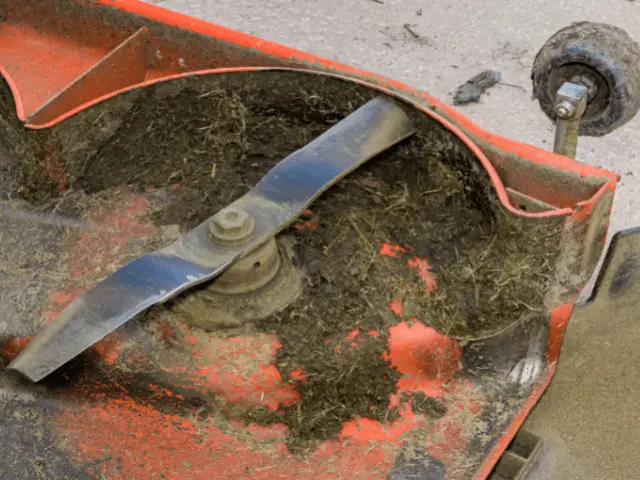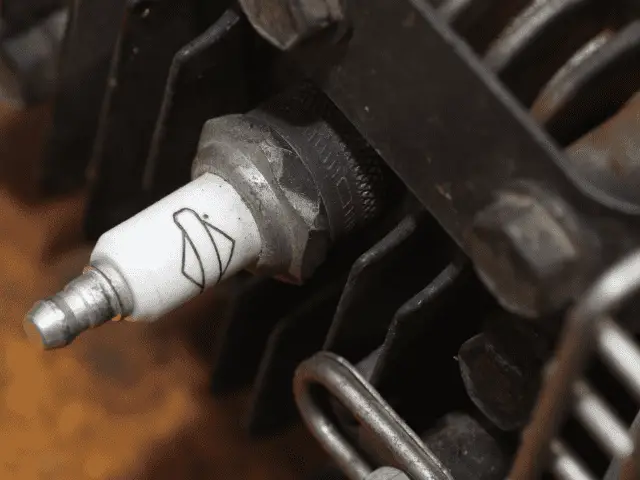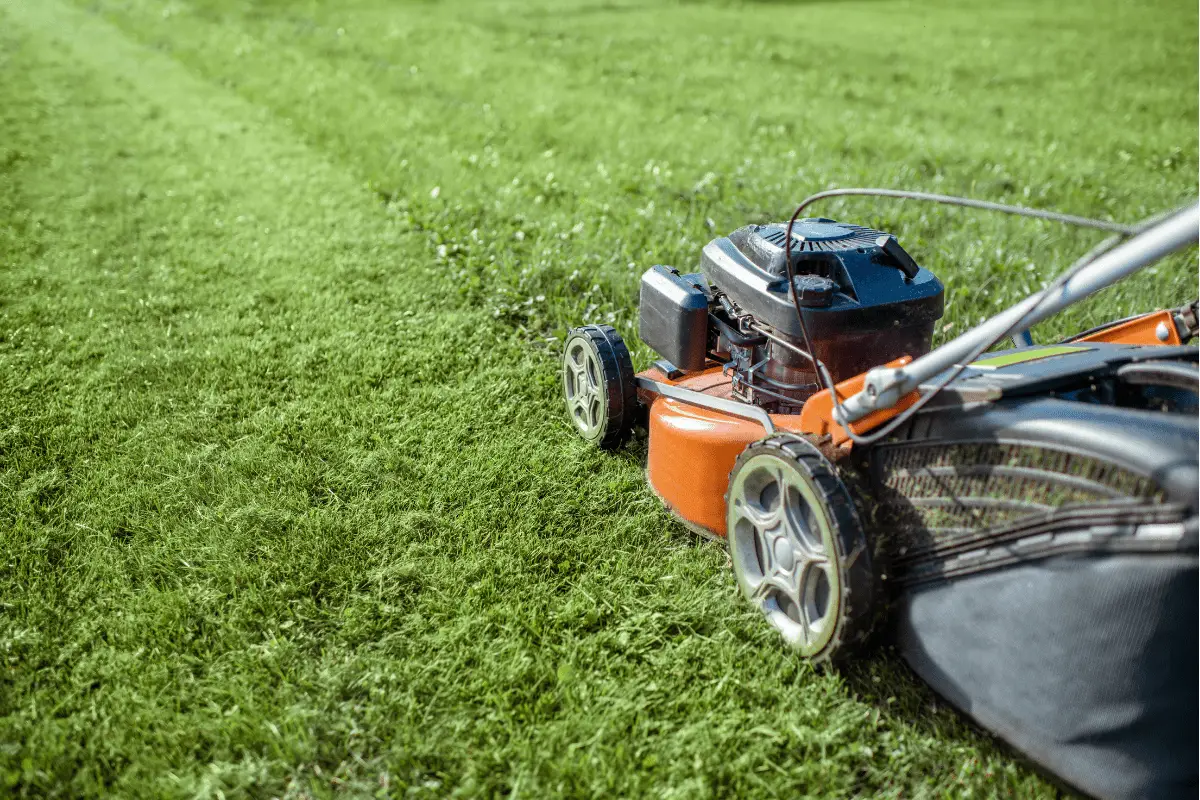Should I take my lawnmower when I move?
You may have asked yourself this question amid the moving chaos. You’re already moving the contents of a whole house, so do you need the added nuisance of moving a lawnmower?
It depends on many factors. Here are the advantages and disadvantages of moving your lawnmower vs selling it.
Table of Contents
Pros of Taking Your Lawn Mower When Moving
The major benefit of moving your lawnmower is that you won’t have to buy a new one. Needless to say, that’ll save you a lot of money. Plus, you won’t need to get rid of the machine that you’re already used to.
If your mower is working fine and is still new, there’s no need to leave it behind it or sell it.
One more benefit of moving your lawnmower is that you’ll be able to use it immediately after you settle in. You won’t have to wait with a messy yard until you buy a new one. Besides, you won’t have to deal with the hassle of selling it and looking for a buyer.
But is that all? What about the disadvantages of moving your lawnmower?
Cons of Taking Your Lawn Mower When Moving

Taking your lawnmower to a new house is a hassle for sure. You’ll have to make a lot of effort to pack the hefty machine, and it’s still a risky process because anything can happen during the move.
If the lawnmower is old, the risk is even bigger because the machine could be too fragile to load on a truck.
On top of that, it’ll be a pain to find a place for the mower on the moving truck. These machines are large and typically coated with grass, gas and oil. You can’t just squeeze them in with other furniture.
Lastly, you’ll have to pay money for moving the mower, and you’re likely already paying a lot for the whole process.
The movers may also make it harder for you by refusing to load the mower on the truck. This usually happens with gas-powered mowers, although they should be safe when drained of the liquid.
If the lawnmower is too old or fragile, the obviously better option is to buy a new one and save yourself the hassle of moving this one. If the house you’re moving to doesn’t have a yard, you can ditch the mower altogether without buying a new one.
Are Lawn Mowers Allowed on Moving Trucks?
Yes, lawnmowers are allowed on moving trucks as long as they’re drained of the gas.
Items that are illegal to carry on moving trucks include gasoline, perfume, aerosol cans, fertilizers, paint, pesticides, and anything that contains alcohol.
Before loading the lawnmower on the moving truck, you’ll have to drain it of oil and gas. Otherwise, it’ll be illegal to move it.
Some companies will still refuse to move gas-powered mowers, even if they’re drained. So, you’ll want to ask about that before dealing with the company.
How to Pack Lawn Mower Properly for Moving
Packing a lawnmower isn’t easy because many things can go wrong. You may lose some parts, and you may accidentally damage others. Plus, you need instructions to drain the gas and oil from the machine.
Here are detailed steps.
Step 1: Drain the Mower
The first thing you should do is find a suitable area to pack the mower. First, lay a tarp on the ground and move the mower to be on top of it.
The tarp isn’t necessary, but it’ll keep the ground clean while you’re draining the mower. You don’t want oil on your soil or your grass.
Now, drain all the gas and oil, pouring them into any jugs or old containers you have around. You’ll have to find a way to discard them . There are local companies that can help with that. What’s important is to keep them in a safe place, away from any heat.
. There are local companies that can help with that. What’s important is to keep them in a safe place, away from any heat.
Step 2: Prepare the Mower’s Parts

After you drain the mower, wear protective gloves and start removing the blades carefully. Don’t attempt to do it without gloves because the blades may hurt your hands. Plus, always make sure to check the instructions manual before removing them.
Now, it’s the spark plug’s turn. You’ll want to remove it because it may start the engine. So, take it out and leave it aside.
After removing the blades and the spark plug, start cleaning all the lawn mower’s parts thoroughly. Remove all the debris from the blades and all the attachments. You can use water and soap and use a wet cloth for the hard-to-reach parts.
Now, take all the attachments and blades you removed from the mower and wrap them in wrapping paper.
Step 3: Load the Mower on the Moving Truck
Now that you’re done cleaning the mower and wrapping the blades, it’s time to load it on the moving truck. To do so, make sure all the parts are wrapped in bubble wrap.
That way, you’ll protect the parts from getting scratched, and you’ll prevent them from scratching other items in the box.
Put all the wrapped items in a separate moving box, label it, and put in on the truck. Now, using a tow dolly, load the mower on the truck or the moving van.
The right way to place the mower on the truck is to keep its wheels perpendicular to the truck’s wheels. That way, you make sure that the mower doesn’t move with each sudden move or acceleration from the truck.
On top of that, you’ll want to secure the mower in its place using a heavy-duty cord and preferably cover it with a tarp for further protection.
Closing Thoughts
So, should I take my lawnmower when I move?
That depends on whether you need it or not. If the house you’re moving to has a small yard, you can get rid of the mower. It won’t be worth the hassle of moving it.
Otherwise, if you’ll need it, it’s better to take it because a new one will cost you a lot.
Find this article helpful? We also have lots of tips for how to move everything else in your garage too.

